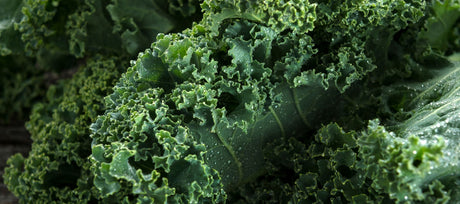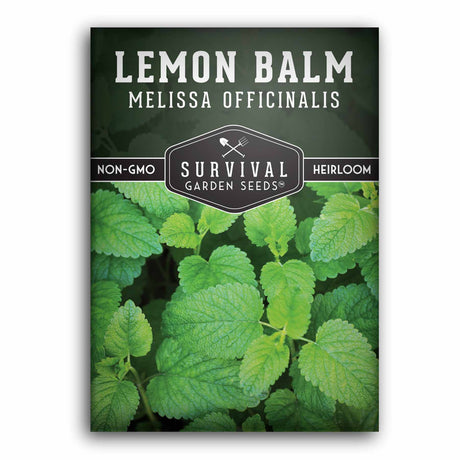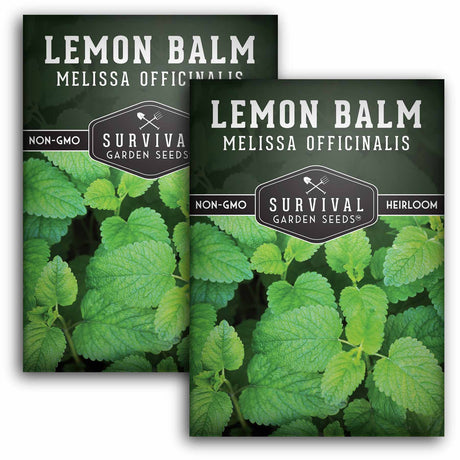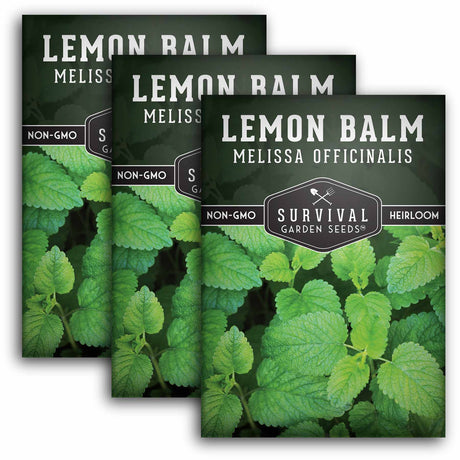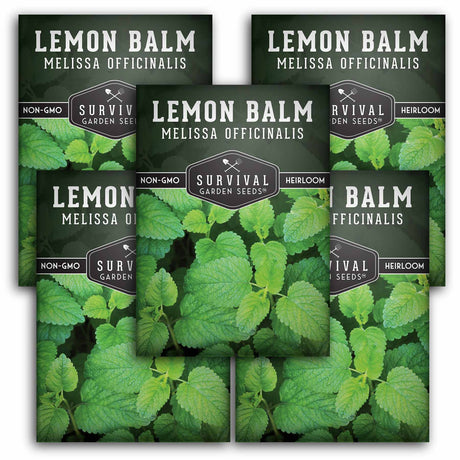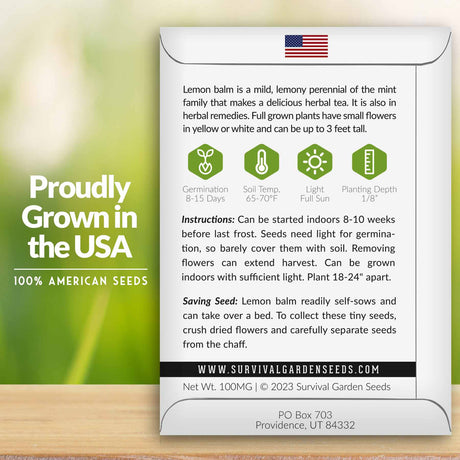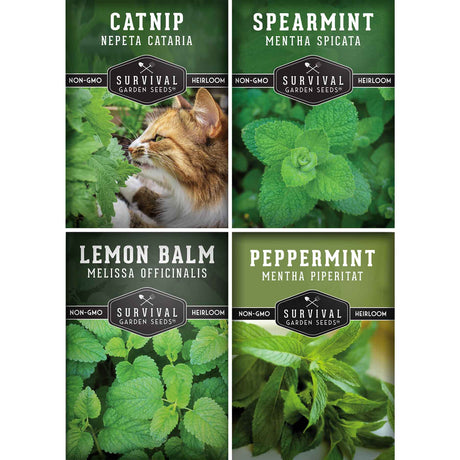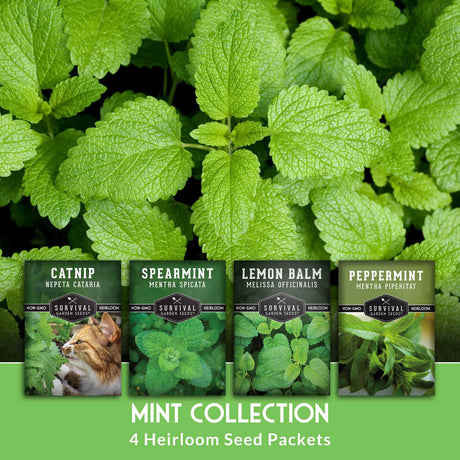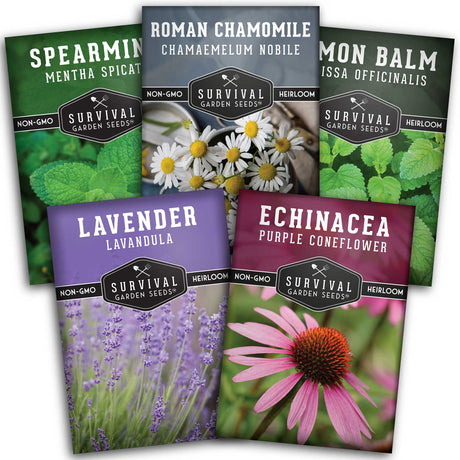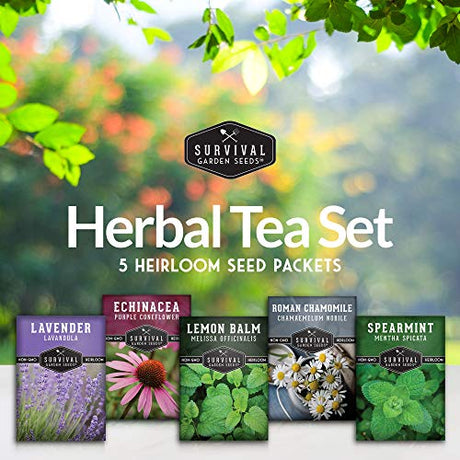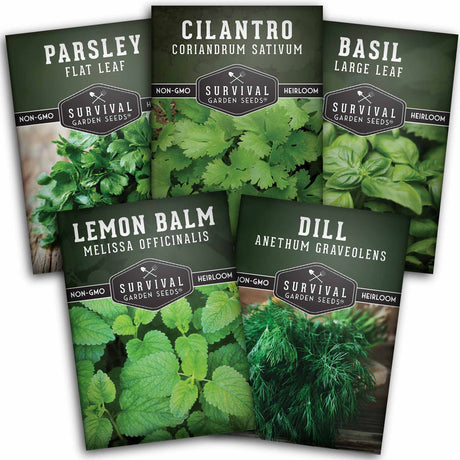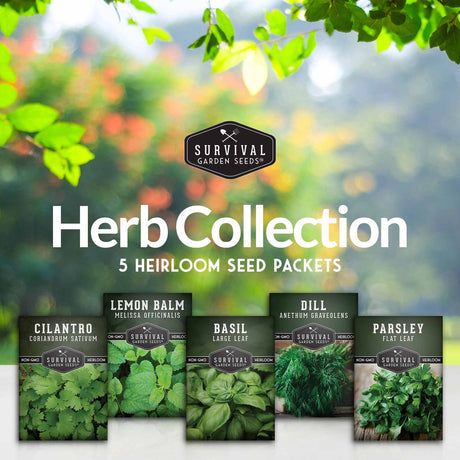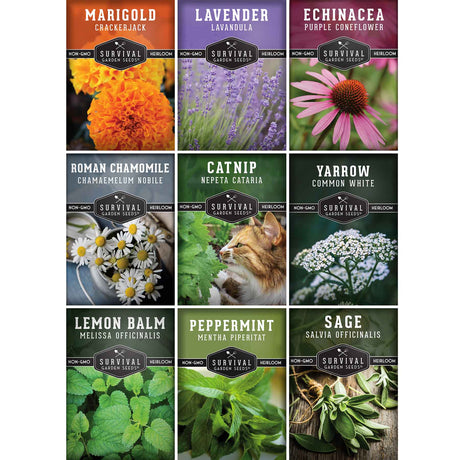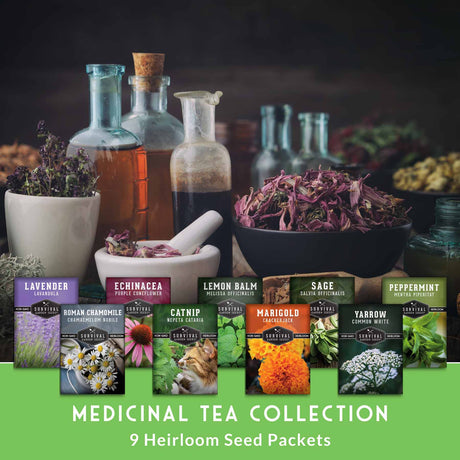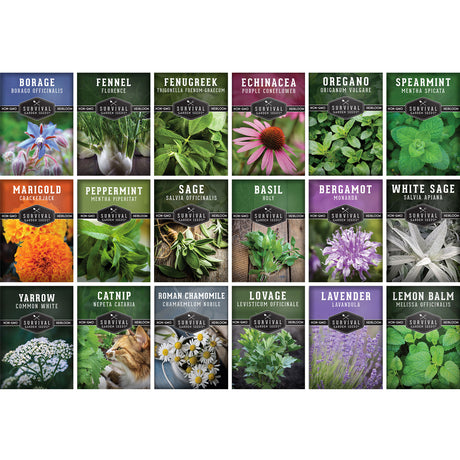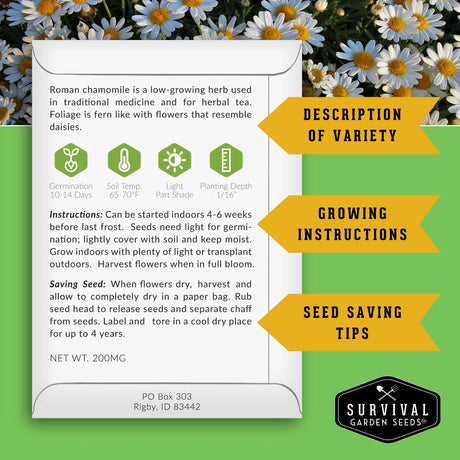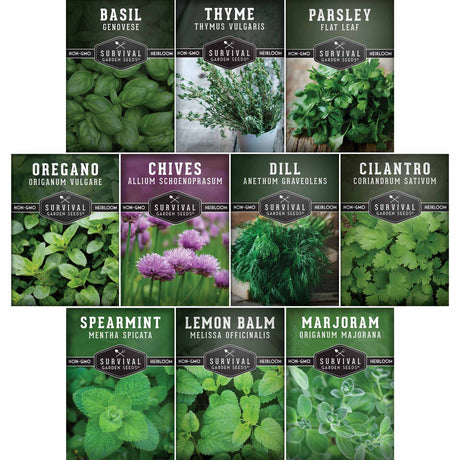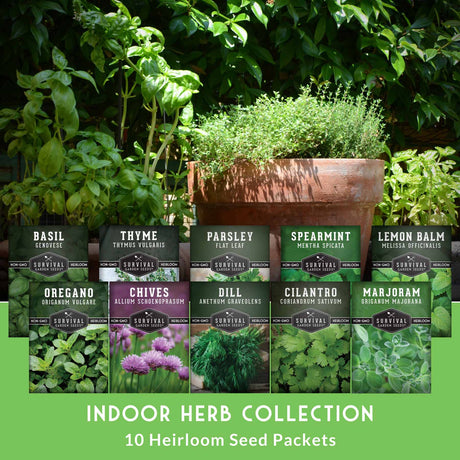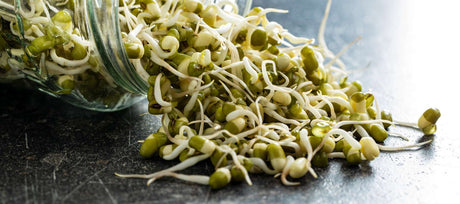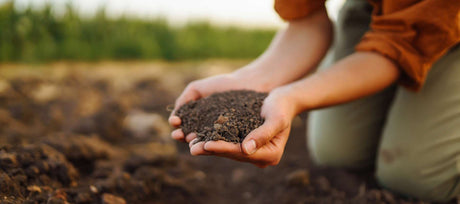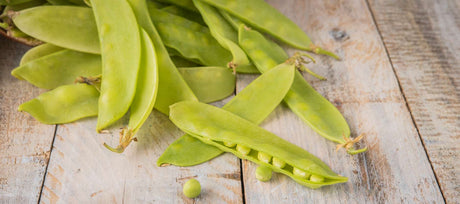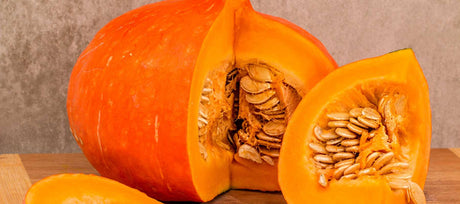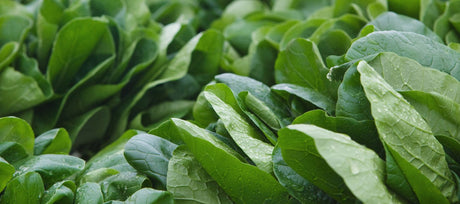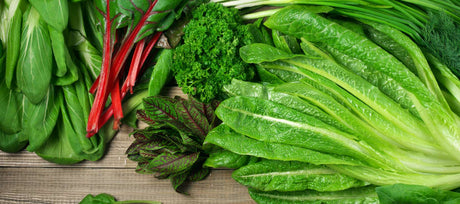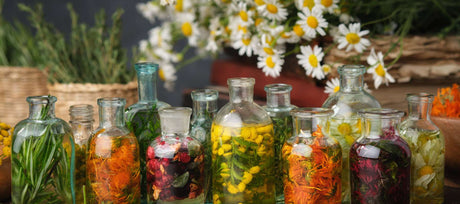Survival Garden Seeds offers heirloom quality lemon balm seeds, perfect for those who enjoy fresh, minty flavors. Our seeds are non-GMO and are selected for reliability and high germination rates.
Growing Lemon Balm Seeds in Your Garden
- Aromatic leaves with a lemony scent
- Calming and medicinal properties
- Non-GMO, heirloom seeds
- Used for teas, cooking, and attracting pollinators
INTRODUCING LEMON BALM SEEDS
Lemon balm is a member of the mint family. Cherished in herbal medicine and for soothing effects, it has spread worldwide from Europe’s Mediterranean. Lemon balm seeds produce herbs with a pleasant flavor, resembling a lemon. It can be grown in USDA hardiness zones 4 to 9. Adaptive and resilient, this herb can grow and be productive for many years without excessive maintenance.
HOW TO PLANT LEMON BALM SEEDS
Lemon balm seeds can be started inside in early spring or directly in the garden after the last frost has passed. As the seeds need light for germination, press them into the soil without covering them. Keep the soil moist until sprouting begins, usually within 10 days to 2 weeks. Transplant or thin the seedlings to 18 inches apart, securing them with room to spread.
MAINTAINING LEMON BALM PLANTS
Lemon balm plants prefer a sunny spot. They can also tolerate partial shade, especially in hot climates. In this case, the afternoon shade can prevent wilting. The plant requires regular watering, especially during dry spells. Keeping the soil consistently moist is optimal. Trimming the plant back in midsummer will encourage fresh growth. If left unchecked, lemon balm can be invasive; regular harvesting can help control its spread. Although it is easy to remove, many gardeners prefer to grow this one in its own raised bed, container, or pot to keep it contained.
Get Survival Garden Seeds' lemon balm seeds, and rejoice in a delightful herb: one that enhances the garden with fragrance and beauty. Perfect for different applications, this plant will give you joy for many years. Dry the leaves and save them for the winter season. They will provide flavorful teas for those cold months.
